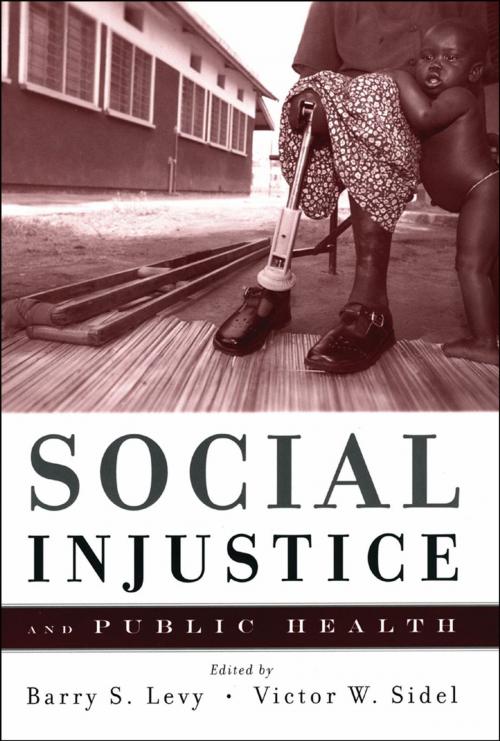Social Injustice and Public Health
Nonfiction, Health & Well Being, Medical, Reference, Public Health| Author: | Barry S. Levy;Victor W. Sidel;Marian Wright Edelman | ISBN: | 9780199883752 |
| Publisher: | Oxford University Press, USA | Publication: | August 25, 2005 |
| Imprint: | Oxford University Press, USA | Language: | English |
| Author: | Barry S. Levy;Victor W. Sidel;Marian Wright Edelman |
| ISBN: | 9780199883752 |
| Publisher: | Oxford University Press, USA |
| Publication: | August 25, 2005 |
| Imprint: | Oxford University Press, USA |
| Language: | English |
Two past presidents of the American Public Health Association have edited this book on the ways in which social injustice causes and contributes to public health problems. Their previous books War and Public Health and errorism and Public Health both dealt with specific issues of social injustice as they relate to public health. The current book addresses a broader set of issues in a more comprehensive manner. This book defines social injustice as the denial or violation of economic sociocultural political civil or human rights of specific populations or groups in society. These groups are socially defined in terms of racial or ethnic status language country of origin socioeconomic status age gender sexual orientation or other perceived group characterisitics. Social injustice manifests in many ways ranging from various forms of overt discrimination to the wide gaps between the "haves" and the "have-nots" within a country or between richer and poorer countries. It increases the prevalence of risk factors and hazardous exposures which in turn lead to higher rates of disease injury disability and premature death. Public health professionals as well as students need to have a clear understanding of social injustice in order to address these problems but few books address such a wide range of issues. This book will enable readers to understand social injustice and will prepare them to recognize document investigate and prevent social injustice and its effects on health. This book is organized so that health professionals students in the health professions and others will find it of practical value in public health and medical care research education policy development and advocacy.
Two past presidents of the American Public Health Association have edited this book on the ways in which social injustice causes and contributes to public health problems. Their previous books War and Public Health and errorism and Public Health both dealt with specific issues of social injustice as they relate to public health. The current book addresses a broader set of issues in a more comprehensive manner. This book defines social injustice as the denial or violation of economic sociocultural political civil or human rights of specific populations or groups in society. These groups are socially defined in terms of racial or ethnic status language country of origin socioeconomic status age gender sexual orientation or other perceived group characterisitics. Social injustice manifests in many ways ranging from various forms of overt discrimination to the wide gaps between the "haves" and the "have-nots" within a country or between richer and poorer countries. It increases the prevalence of risk factors and hazardous exposures which in turn lead to higher rates of disease injury disability and premature death. Public health professionals as well as students need to have a clear understanding of social injustice in order to address these problems but few books address such a wide range of issues. This book will enable readers to understand social injustice and will prepare them to recognize document investigate and prevent social injustice and its effects on health. This book is organized so that health professionals students in the health professions and others will find it of practical value in public health and medical care research education policy development and advocacy.















